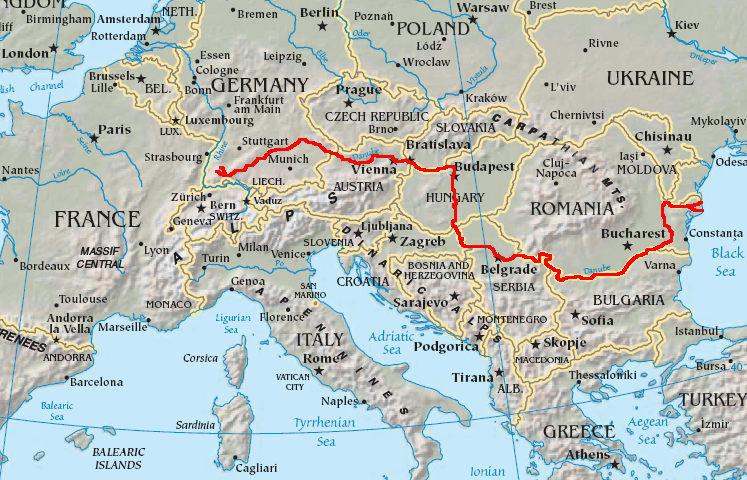[Added
on 2015/7/18: This used to be called Show 36. I've renumbered the
shows, so that this one is Show201. The first digit will indicate which
series the show is from: 1 for the first cycle, 2 for this second
cycle, and so on. For instance, the July 4th show for next
year will be numbered numbered Show301, and so on. If you didn't figure
this out yet, my first show aired the week of July 4th, 2014.]
With this broadcast, we begin a new year of Archie's Archives. It's July 4th, so we're going to feature national anthems, and other patriotic songs, both from the USA and other lands.
Part A
The Star Spangled Banner (Francis Scott Key, John Stafford Smith), sung by Lauren Hart, and also by Phi Mu Alpha National Sinfonia Fraternity
National Emblem March (Edwin Bagley), which features a motif from the Star Spangled Banner.
The
National Anthem of the Netherlands (Wilhelmus Van Nassouw)
The
National Anthem of South Africa (Enoch Sontonga, C. J. Langenhowen), sung by Nianell (Namibia) at the 2014 Rugby World Cup South Africa/New Zealand match.
Jerusalem (And did those feet in ancient time, William Blake, C. H. H. Parry, orchestrated by Edward Elgar) by the BBC choir and orchestra, Last night of the Proms, 2012.
Finlandia Hymn (Jean Sibelius) sung by Carmina Slovenica.
God Bless America (Irving Berlin)
Lift Every Voice and Sing (James W and John R. Johnson)
The
National Anthem of Israel, performed by the Swarovsky Orchestra
Part B
The
National Anthem of Spain, performed by the Swarovsky Orchestra
The
National Anthem of Canada, performed by the Swarovsky Orchestra
The
National Anthem of Japan, performed by the Swarovsky Orchestra
All you need is Love, sung by The Beatles
La Marsellaise, performed by the Swarovsky Orchestra
The
National Anthem of India performed by several artists
Lionel Ritchie, Michael Jackson
We Are The World
This information is freely available, but for convenience, here is the list of soloists as given in Wikipedia:
| Soloists |
|
Chorus |
|
Lionel
Richie
Stevie
Wonder
Paul
Simon
Kenny
Rogers
James
Ingram
Tina
Turner
Billy
Joel
Michael
Jackson
Diana
Ross
Dionne
Warwick
Willie Nelson |
Al
Jarreau
Bruce
Springsteen
Kenny
Loggins
Steve
Perry
Daryl
Hall
Huey
Lewis
Cyndi
Lauper
Kim
Carnes
Bob
Dylan
Ray Charles |
Don
Henley
Harry
Belafonte
Lindsey
Buckingham
Mario
Cipollina
Johnny
Colla
Sheila
E.
Bob
Geldof
Bill
Gibson
Chris
Hayes
Sean
Hopper
Jackie Jackson |
La
Toya Jackson
Marlon
Jackson
Randy
Jackson
Tito
Jackson
Waylon
Jennings
Bette
Midler
John
Oates
Jeffrey
Osborne
Anita
Pointer
June
Pointer
Ruth
Pointer
Smokey Robinson |
Bedrich Smetana:
The Moldau
Richard Rodgers:
Laendler, from
Sound of Music
Guantanamera (Jose Marti, Unknown) performed by Playing for Change
Part C
Bach-Vivaldi:
Concerto in D performed by German Brass in
Swinging Bach
Bach: B minor Suite, performed by Jiri Stivin
Quintessence Sax Quintet:
Fudge fugue in G minor
Bach:
Double Concerto in D minor, played by Adele Anthony, Gil Shaham, and the Gewandhaus Orchestra
Turtle Island String Quartet:
Variations on Bach Themes
Jacques Loussier Trio:
Gavotte
King's Singers:
Deconstructing Johann
Part D
Bobby McFerrin, Jacques Loussier trio:
Improvisation on Wachet auf
Turtle Island String Quartet, Miles Davis:
Seven Steps to Bach
Tom Lehrer:
We Will All Go Together When We Go



